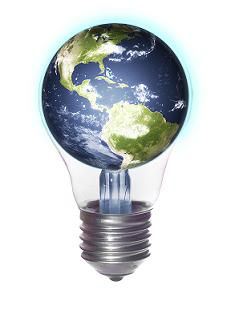The Asia Pacific Economic Cooperation - bringing together world leaders like US President Barack Obama, Chinese President Hu Jintao and Japanese Prime Minister Yukio Hatoyama - must look beyond the group's usual areas of interest and focus on the common challenges posed by climate change.
"Solving problems of protectionism, trade zones, banks and exchange rates is very important, but what is all of this worth if the world slips into chaos because of devastating climate change?" said Kim Carstensen, Leader of the WWF Global Climate Initiative.
"APEC leaders must open their eyes and look into the real threats and challenges of this world and their region. We cannot talk about sustainable growth without solving the most intractable problem the planet is facing."
UN climate talks are floundering due to attempts by some governments to lower expectations for a new treaty and efforts
to delay the deal.
The production of a legally binding framework at Copenhagen together with an amended Kyoto Protocol will help secure the survival of countries, cultures and ecosystems and clear the way towards a low carbon economy.
"If APEC countries would tackle the climate crisis with the same rigor they showed in protecting their economies from the financial meltdown, the world wouldn't have to worry about a lack of political will or insufficient levels of ambition in the UN climate talks", said Carstensen.
"We urge APEC leaders to bring economic recovery and climate recovery in sync, so that money spent on keeping growth levels high also helps bringing emission levels down."
In WWF's view, the Pacific region should become a model of technology cooperation, where developed APEC countries assist their developing country partners with adaptation and mitigation, through clean technologies, financial support and capacity building.
"Many want the APEC region to become a free trade zone, but they should also exploit its potential as a clean tech zone," said Carstensen.
"There is probably no better regional network of countries in the world for piloting smart concepts for technology cooperation like those discussed in the UN climate talks. To boost the international negotiations, we urgently need pioneers who show what’s possible and how to make it happen."
The Asia Pacific Economic Cooperation (APEC) brings together 21 countries from around the Pacific to cooperate on trade and investment. The member economies account for about 40% of global population, 44% of world trade and 54% of global GDP.
In WWF's view, the top ten ingredients for a fair, ambitious and binding Copenhagen deal are:
- Governments at Copenhagen need to create a legally binding framework with an amended Kyoto Protocol and a new Copenhagen Protocol, which secures the survival of countries, cultures and ecosystems and clears the way to the low carbon economy.
- Global emissions peak before 2017 keeping overall warming well below the 2 degrees danger threshold, going down to below 1.5 degrees as soon as possible.
- Industrialized countries commit to reduce their emissions by 40% by 2020, compared to 1990 levels.
- Developing countries agree to undertake significant action making emissions at least 30% lower than Business-As-Usual by 2020.
- Zero net greenhouse gas emissions from deforestation and degradation by 2020, taking into account indigenous peoples' and local communities' rights.
- A framework for immediate adaptation action is set in place, especially for vulnerable countries and ecosystems, including the provision of insurance and compensation.
- Public finance in the order of US$160 billion per year is provided to developing countries for adaptation and mitigation through innovative sources of finance.
- Mechanisms are set up to strengthen technology transfer and technology cooperation on research, development and dissemination of low-carbon and climate-resilient technologies.
- A new institutional set-up under the UNFCCC allows for coordination, implementation and funding allocation, in a transparent and democratic way, and incentivizes compliance.
- Parties agree transparent and comparable standards for carbon markets, forests and land use, mitigation efforts and inventories, and ways to limit international aviation and shipping emissions.




